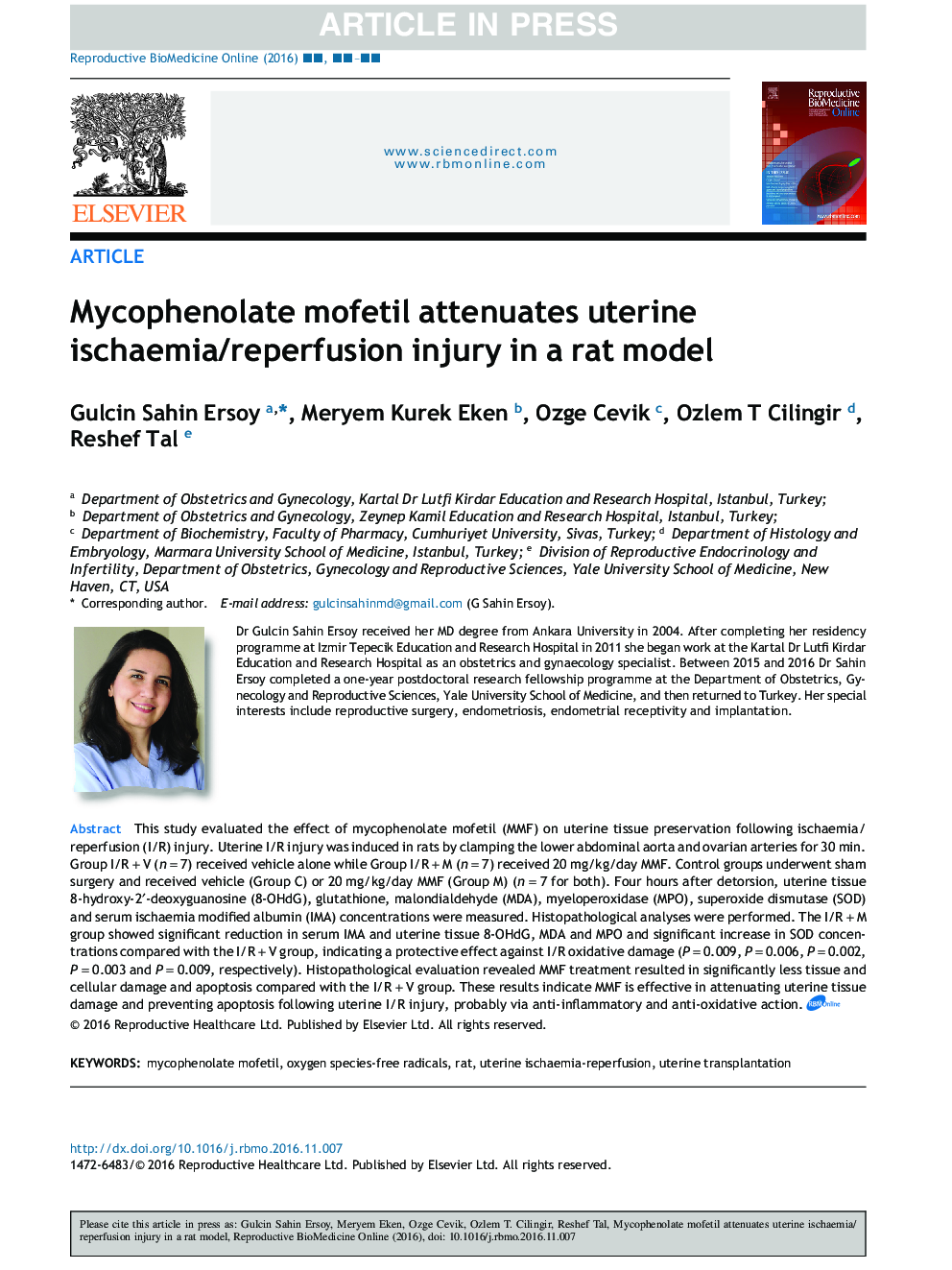| Article ID | Journal | Published Year | Pages | File Type |
|---|---|---|---|---|
| 5696781 | Reproductive BioMedicine Online | 2017 | 10 Pages |
Abstract
This study evaluated the effect of mycophenolate mofetil (MMF) on uterine tissue preservation following ischaemia/reperfusion (I/R) injury. Uterine I/R injury was induced in rats by clamping the lower abdominal aorta and ovarian arteries for 30âmin. Group I/R + V (n = 7) received vehicle alone while Group I/R + M (n = 7) received 20âmg/kg/day MMF. Control groups underwent sham surgery and received vehicle (Group C) or 20âmg/kg/day MMF (Group M) (n = 7 for both). Four hours after detorsion, uterine tissue 8-hydroxy-2â²-deoxyguanosine (8-OHdG), glutathione, malondialdehyde (MDA), myeloperoxidase (MPO), superoxide dismutase (SOD) and serum ischaemia modified albumin (IMA) concentrations were measured. Histopathological analyses were performed. The I/R + M group showed significant reduction in serum IMA and uterine tissue 8-OHdG, MDA and MPO and significant increase in SOD concentrations compared with the I/R + V group, indicating a protective effect against I/R oxidative damage (P = 0.009, P = 0.006, P = 0.002, P = 0.003 and P = 0.009, respectively). Histopathological evaluation revealed MMF treatment resulted in significantly less tissue and cellular damage and apoptosis compared with the I/R + V group. These results indicate MMF is effective in attenuating uterine tissue damage and preventing apoptosis following uterine I/R injury, probably via anti-inflammatory and anti-oxidative action.
Related Topics
Health Sciences
Medicine and Dentistry
Obstetrics, Gynecology and Women's Health
Authors
Gulcin Sahin Ersoy, Meryem Kurek Eken, Ozge Cevik, Ozlem T. Cilingir, Reshef Tal,
